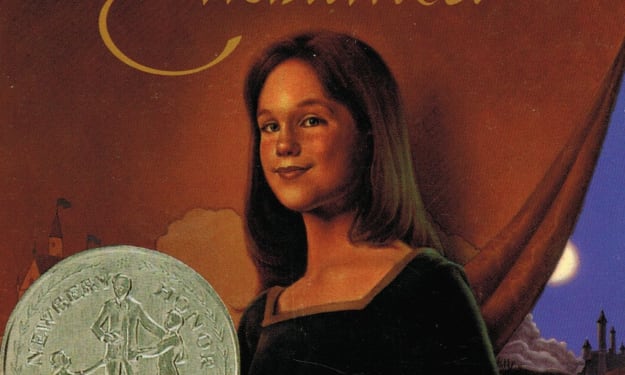My top three Most Influential male protagonists
And How they can shape your narrative

I love these people, and they mean a lot to me in many different ways from different parts of my life. The fact that they are male is my main source of inspiration for the way I write, and these people and their stories is just another huge example of why I love to write in this perspective.
They are written in a profoundly deep and three dimensional way, have real emotional motives and actions that make sense to their personality and their lives, and their journey is something I feel that I take take along with them—as I feel a connection with their heartaches, their whims and fancies, and their pain and their joy.
Writing male protagonists in a way that isn’t overtly giving in to an archetypal, Herculean heroic stereotype isn’t too hard, as long as you realize that males and females(as well as other genders) all have similar feelings and hopes——that we are all people and we can all have have an emotional rich, vulnerable and complicated human experience.
Which gives to our first male protagonist: Jesse Aarons, from Bridge to Terabithia.
His emotional vulnerability is a keystone point of the plot, which is punctuated with his need to show off to his classmates and family and in a deeper sense—- when looking at his inner feelings, is more of way for him to compete with himself. To see how he can grow and change physically—-but ultimately, indirectly, how he can change emotionally.
For Jesse, in the beginning of the story, the physical endurance of being able to win a race against a particular classmate is driven off kilter by the inclusion of new racer(and new student) who is a girl. He sticks up for her to allow her to race, and she ends up winning—-but finds himself interested and a bit intimated by her open way of expression and tomboyish ways.
The emotional resonance he feels about certain descriptions(how he almost feels like he’s drowning listening to Leslie read her essay on scuba diving) and certain situations are not only sensory driven for Jesse, but also physical. His artistic inclinations are also driven by his outward need to express his emotional turmoil, his unconscious need to be set apart from others and how his art can be an outlet as well as a tool to share his creativity and talent.
Jesse is a fully realized individual from the very beginning whose journey is wrought with a sense of trying to find out his purpose and his sense of identity.
For these reasons, and the fact that he comes to terms with devastating grief and misplaced guilt with a driven sense of maturity and care for others(sharing Terabithia with his younger sister and finally reaching out to his father—-making a clear understanding between grief, denial and strength), is a very important way that readers can truly make a connection to your protagonist and the way they deal with complex problems.
The overall malaise of human anxiety and the painful realization that life is out of our control—-that unexpected situations are a part of life become almost cathartic as we can all recognize the struggle of Jesse, and that we are all in this struggle together. His emotional growth is shown to us by how he now chooses to interact with the people in his life, and that narrative is strong and verifiable by the journey.
Jesse is an excellent example of how to create a well rounded, emotionally diverse character that grows, changes and has inner strength from his problems.
Driven into the metaphorical arms of someone I dearly, I often sink into the pages of Holden Caulfield, the sort of existential crisis of a person that treads too deeply in the waters of angst and interpersonal alienation, and emotional turmoil that wades between moral responsibility and pained indifference.
He is someone who feels too deeply, thinks instead of speaks, and imagines instead of acts.
He does not change in the story, nor does he intend to, or want to. He merely exists in a constant shrug, a question mark over his brain, and instead of a look ahead to horizon for the mew fresh burst of day, he looks back at the shadows of his days past—-lingering in self deprecation and often poetic and fantasy driven narration.
His story consists of his rejection of society and of the expectations that it places on people, of how he longs for and yearns for things and people—-but in something akin to an anxiety attack, he freezes and stops, never reaching out for them in any way. No matter how close they are to him, it feels insurmountable, and even painful.
His emotional turmoil is shown to be something entangled with depression. It’s someone who feels so much they are left to feel only indifference. His sometimes passionate displays to others often congeal and harden to the fresh realities that are revealed, either by his own realizations or by someone else pointing it out to him.
This way of narration, with more observation than action, is a very interesting analysis of how one can get in times of duress and melancholy. How they stay in their own head all the time, trail off, get off subject and even do things that make absolutely no sense—-it is the perfect depiction of a person with a possible mental illness.
But even as there is no heavy plot driven elements to this novel, it is coming from a real place. A place that we all have tried to form—that safe haven from the world.
Holden is someone who is contrary to society and self evident by only his own storyline, is also someone who we can understand and relate to.
Sometimes just reaching for that phone to make that one supposedly simple phone call to that one person you’ve needed to talk to is the hardest thing to do.
But, just saying you’ll do it tomorrow or some other time can give you hope—and that’s what Holden does for me.
With the strength of his hope, the self imposed sanctions he put upon himself through his manifested indifference and the extreme sense of sadness and empathy he has for people and circumstances—-all show us the ways we all can inhibit ourselves through our own narrow perspective on life. Through his quixotic and emotional ideas on how life should be, and how society should react to others undergoing similar situations, we can see him on the level of someone who is emotionally intelligent, but lacking in real world practically and sense of reality. He sees himself almost in a third perspective stance, and by telling his story to us, he re-lives it but also becomes further away from it.
And my third most favorite and influential male protagonist is on an even more personal note.
Edward Moon from The Somnambulist.
He is a quieter, more serene, and strangely exotic version of Sherlock Holmes. He isn’t that appreciated and he is not well liked—except by the police that he helps.
But, he’s crafty and witty enough to solve crimes, or even against a more terrible plot against the city!
For me, Edward Moon shows me two things: a subtle mix of self preservation(I regard to his human) and also a tendency for self destruction.
He takes on situations and jobs that are crazy and odd, without much regard to his own personal well being. His journey isn’t really that emotional, but he shows a tendency to be a bit over the top with his knowledge and know how. He does solve the lost unsolvable crimes, after all.
The extremely private manner in which he deals with a bearded lady with an additional arm growth, was the most puzzling and strangely emotional part about Edward, to me.
He seeks human touch and relationships from a very sterile perspective. He doesn’t seem to want real intimacy with anyone, but with this particular character (bearded lady) he finds some semblance of warmth, connection and almost a touch of tenderness.
He finds her beautiful, and strokes her beard, and that’s all it seems to be about—-that brief touch with humamkind before the sterility of his existence propels him forward, almost like a machine—-neverending yet knowing there must be an end.
This particular aspect of Moon awoke something within me, the power of sexuality, the expression of something tender without an invasive excavation of anatomy and the diversity of how this relates to others on a more asexual platform. That’s my personal feelings on Moon. Other than that, I personally feel his journey outweighs his emotional growth and takes away from his independence. I wanted to see more of that Moon, the emotionally intense driven individual that seemed to have an adverse reaction to human sexual behavior—-and I wanted to see more of his past and his emotional turmoils.
I loved The Somnambulist, even as I criticize it, but I still can’t get over that bearded lady and that brief moment of happiness it brought Moon to be with her.
It was a turning point for the way I felt about human intimacy, and there are many moments in that novel where that part of my hidden self came out—-like a light came on suddenly, and for that, I’m grateful for that book and that character.
These are my top three favorite and most influential male protagonists! Hoped you enjoyed it! ❤️
If you wanna read my first article about female protagonists, please click on the link below!
About the Creator
Melissa Ingoldsby
I am a published author on Patheos,
I am Bexley by Resurgence Novels
The Half Paper Moon on Golden Storyline Books for Kindle.
My novella The Job and Atonement will be published this year by JMS Books






Comments
There are no comments for this story
Be the first to respond and start the conversation.